AI4PEP Board of Trustees
AI4PEP Board of Trustees guides the strategic direction of the program. It supports good governance and helps create an environment that reinforces and motivates inter-institutional, international, and regional collaborations to foster effective implementation of the objectives of the program. The AI4PEP Board of Trustees steers and guides the implementation of plans and delivery of the program. It is led by The Executive Director Prof. Jude Kong as the Board chair and comprises the following members.
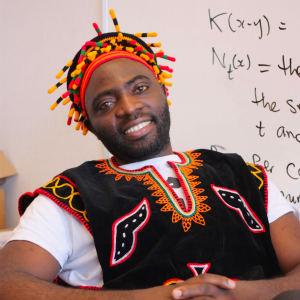
Prof. Jude Kong
Executive Director
Prof. Jude Kong is a professor in the Mathematics & Statistics Department at York University and the founding Director of the Africa-Canada Artificial Intelligence and Data Innovation Consortium (ACADIC). Additionally, he is the Executive Director of the Global South Artificial Intelligence for Pandemic and Epidermic Preparedness and Response Network and the Regional Node Liaison to the steering committee of the Canadian Black Scientist Network (CBSN). He obtained his Ph.D. in Mathematics from the University of Alberta, his MSc. in Engineering mathematics from the University of Hamburg-Germany and the University of L’Aquila-Italy. His B.Sc. in Computer Science and Mathematics was acquired at the University of Buea-Cameroon and his Bachelor of Education (B.Ed) degree in Mathematics was earned at the University of Yaounde-Cameroon. Before joining York University, he did a postdoc at Princeton University. Dr. Kong is an expert in artificial intelligence, data science, mathematical modelling, infectious disease modelling and mathematics education. His principal research program focuses on the use of artificial intelligence, data science, mathematical models and other quantitative methods to improve decision-making for clinical public health. During the COVID-19 pandemic, he has been leading an interdisciplinary team of more than 52 researchers from key academic and government institutions in nine African countries that have been using Artificial intelligence to help government and local communities to contain and manage the spread of COVID-19. In 2020, he won a York Research Leader Award. In 2021 he was spotlighted among Canadian Innovation Research Leaders 2021 for his work with ACADIC. In 2022, he was spotlighted as a Change Maker by People of YU for his work in helping others learn mathematical concepts and encouraging them to find their passion and achieve more than they thought was possible. He is an Area Editor of the Data & Policy Journal where he focuses on Data Technologies and Analytics for Policy and Governance.
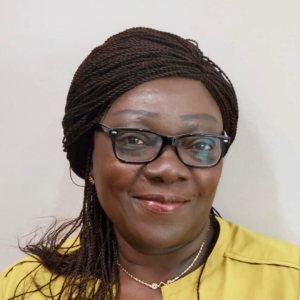
Prof. Gertrude Mianda
Gender Equity Inclusion & Decolonization Director
Prof. Gertrude Mianda: holds a PhD in Sociology in Gender and Development from Université Laval in Québec City. She is the Director of the Tubman Institute for Research on Africa and its Diasporas at York University. She is a Full Professor in the Gender and Women’s Studies program at the Glendon Campus and in the School of Gender, Sexuality and Women’s Studies, at York University. She was also the Chair of the School of Gender, Sexuality and Women’s Studies at York University from 2011-2015. Professor Mianda is a sociologist, feminist, and Africanist with research interests in gender and development, globalization, post-colonialism, decolonialism with a focus on Africa. She is interested in seeking gender equity. She advocates for Women’s rights as Human rights with a focus on Women in and from the Global South. Her most current research on Gender Based Violence in the DRC, funded by SSHRC, examines the experiences of female survivors of rape as a weapon of war. Her research also focuses on immigration, primarily on francophone Africans, in the minority francophone community in Canada (Toronto and Ottawa), particularly their economic and social integration.
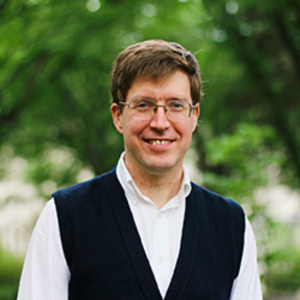
Prof. Nathaniel Osgood
Digital Tools & Platform Co-Director
Prof. Nathaniel Osgood serves as Professor in the Department of Computer Science and Associate Faculty in the Department of Community Health & Epidemiology at the University of Saskatchewan. His research focuses on cross-linking simulation, data science/machine learning, computational science & applied category theory to inform understanding of population health trends and health policy tradeoffs. Among his many data science contributions, Dr. Osgood is the co-creator of two novel mobile sensor-based epidemiological monitoring systems, most recently the Android-, iPhone-, Web and Wearable-Based Ethica Health platform used around the world. He has additionally contributed computer language and software engineering innovations to improve dynamic modeling quality and efficiency, advanced the sphere of application of techniques hybridizing multiple simulation approaches with machine learning and computational statistics techniques, and leveraged such models using “big data” gathered from mobile epidemiological monitoring systems, search volume data, social media, and other sources. Dr. Osgood has led dozens of international courses in computational methods and health around the world, and maintains a foremost commitment to excellence in pedagogy. As part of this commitment, his thousands of free Youtube videos on applications of computational, data and system science methods to health have garnered hundreds of thousands of views and followers.
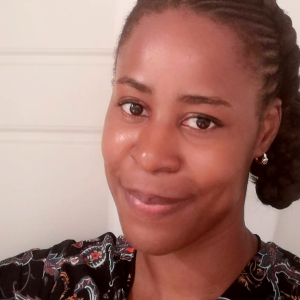
Prof. Alvine Boaye Belle
Digital Tools & Platform Co-Director
Prof. Alvine Boaye Belle: is an assistant professor in the Department of Electrical Engineering and Computer Science at Lassonde School of Engineering. She holds a PhD in software engineering from the University of Quebec (Ecole de Technologie Supérieure). She has completed a 2-year industrial postdoctoral in software engineering at the University of Ottawa under the supervision of Professor Timothy Lethbridge. After completing her postdoctoral, she worked for the federal public service while completing a graduate diploma in public administration and governance at McGill University. Her previous research focused on software maintenance and evolution, optimization, system assurance, artificial intelligence and machine learning. Her current research focuses on the assurance of intelligent software systems throughout their lifecycle. She speaks both French and English. Dr. Boaye Belle is also a mother, and she is very passionate about poetry, winning several poetry contests.
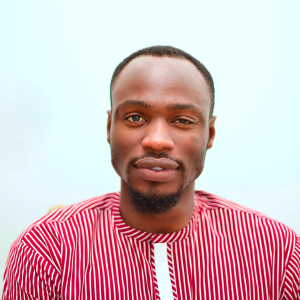
Barr. Jake Okechukwu Effoduh
AI Governance Director & Chief Counsel
Barrister Jake Okechukwu Effoduh: is an International lawyer with expertise in human rights and technology law. He is the Chief Councillor for the Africa-Canada Artificial Intelligence and Data Innovation Consortium (ACADIC). Effoduh is also a Research Fellow at the Center for Human Rights Science at Carnegie Mellon University, USA and a Vanier Scholar at Osgoode Hall Law School, Canada, conducting doctorate research on the legitimization of artificial intelligence in Africa. Effoduh holds two masters degrees in international law from the University of Oxford (UK), and York University (Canada) respectively. He has worked across various supranational legal systems including West Africa’s Economic Community of West African States (ECOWAS), the African human rights system, and the UN Human Rights Council. He has gained legal and programmatic experiences from working in over 22 African countries and other countries outside the region. Effoduh was selected by the U.S. Department of State and the Atlantic Council GeoTech Center into the global AI Connect program and he also serves as the youngest member of the Global Future Council on Frontier Risks, a brain trust of the World Economic Forum. He has published several works on legal and human rights issues on the development and use of AI and he is currently advising two countries on how best to build policies and legislations on the use, development and deployment of AI.
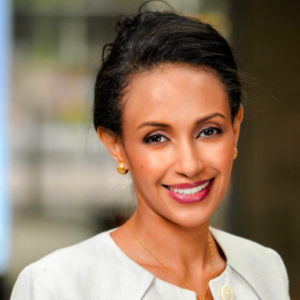
Prof. Mary Goitom
Policy & Advocacy Co-Director
Prof. Mary Goitom (SWC): is an Associate Professor at the School of Social Work and Graduate Program Director of the Development Studies Program in the Department of Social Science at York University. Her research explores migration, mobilities, diasporic connections, transnational processes, and social relations. Her work is centered on community-based research and is grounded in Ethiopian epistemologies and larger African traditional knowledge systems. Prof. Goitom’s work explores the nexus of identity and futurity (imagined world-building), transnational social fields in relation to the constitution of settlement, citizenship, well-being, agency, and resilience.
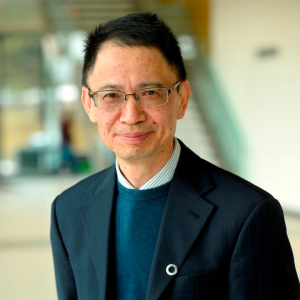
Prof. Jianhong Wu
Policy & Advocacy Co-Director
Prof. Jianhong Wu: Tier I CRC and NSERC/Sanofi Industrial Research Chair, an expert in mathematical modelling and data analytics, and the director of the Laboratory for Industrial and Applied Mathematics (LIAM), the Laboratory of Mathematics for Public Health (MfPH), and the NSERC EIDM MfPH Network. Professor was previously a CRC partner of the IDRC-CRC International Research Chair, and has led bilateral projects with scientists in Brazil (health informatics), India (vector-borne diseases modelling), South and Latin American countries (Zika modeling).
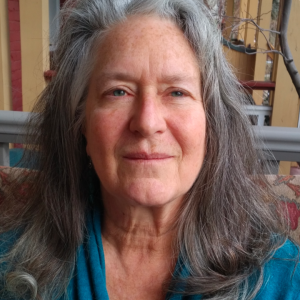
Prof. Patricia E. (Ellie) Perkins
Community Engagement & Relationship Director
Prof. Patricia E. (Ellie) Perkins: is a Professor at York University, Toronto, Canada. She is an Ecological Economist and her recent research focuses on feminist ecological economics, climate justice, commons, and participatory governance. In addition to many journal articles and book chapters, she is the editor of Local Activism for Global Climate Justice: The Great Lakes Watershed (London/New York: Routledge, 2019) and she currently directs a project which is building a network of African and Latin American researchers working on Climate Justice, Ecological Economics andCommons Governance (qesclimatejustice.info.yorku.ca). She is a Lead Author for Chapter 5 (“Demand, Services, and Social Aspects of Mitigation”) of the Intergovernmental Panel on ClimateChange’s Sixth Assessment Report, which was published in 2022. She is collaborating with the Jane Finch community near York University in support of their Community Research Ethics Partnership.
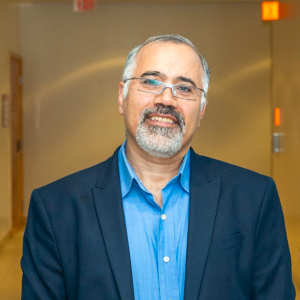
Prof. Ali Asgary
Strategic Working Committee
Prof. Ali Asgary: is the Executive Director of York University’s Advanced Disaster, Emergency and Rapid-response Simulation (ADERSIM) and the Director of CIFAL York (created by UNITAR, YorkUniversity and York Region for leaders, executives, and civil society training). He brings world-leading expertise in disaster risk assessment and modelling, agent-based simulation, integrated AI and Spatio-temporal analysis, and urban and industrial risks at national and international levels.
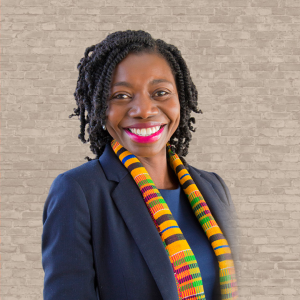
Prof. Sylvia Bawa
Strategic Working Committee
Prof. Sylvia Bawa (TP): is a global sociologist whose research examines how historical inequities in the global system interact with local patriarchal cultures to oppress women. She has received various prestigious funding awards in recognition of her innovative and collaborative work. Dr. Bawa is the principal investigator (PI) for an interdisciplinary SSHRC Partnership Grant (PDG) – Research/Dissemination Network on Canada’s Human Rights Role in Sub-Saharan Africa (CARRISSA) –which examines the nature, attainments and challenges of Canada/Africa transnational human rights engagements. It brings together over 30 academics (in different fields), legal practitioners, activists and civil society actors from six (6) countries and focuses on four thematic areas (Gender/Sexuality/Women’s rights, Democratization, Economic/Social Rights and Investment and Human Rights). She is also co-investigator on another SHRC PDG and Insight Grant. Her experience with leading, participating in and managing large SSHRC PDGs on transitional human rights and international development projects will be useful in administering a grant of this size as the PI. Currently the director of the Resource Centre for Public Sociology at York, Dr. Bawa has held numerous Community Conversations with Black Community groups throughout Toronto under LA&PS Global Community Conversations project on various social justice topics. She will co-lead the community engagement components of the projects.
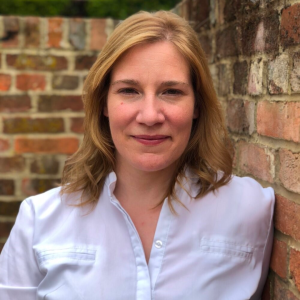
Prof. Tarra Penney
Strategic Working Committee
Prof. Tarra Penney: is a population health scientist focused on the prevention of disease at the global level. She is assistant professor of Global Food Systems and Policy, a faculty member of the Dahdaleh Institute for Global Health Research at York University and a collaborating researcher with the MRC Epidemiology Unit, University of Cambridge UK.
She completed her Postdoctoral training and PhD in preventive medicine and epidemiology at the MRC Epidemiology Unit, University of Cambridge where she examined the multi-levelled impacts of food systems and national policy on population health. Working with national and international organizations and partners in the Global South, her research utilizes systems thinking, complexity science and multiple methods to generate policy relevant evidence to improve systems and tackle some of our largest global challenges including food insecurity, emergence of zoonoses, anti-microbial resistance and the related consequences of climate change.
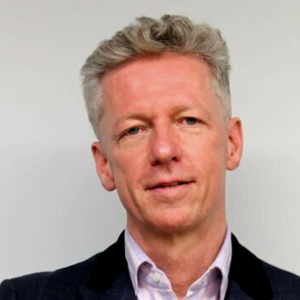
Prof. James Orbinski
Advisor
Prof. James Orbinski (Advisor of the Network): is the Director of Dahdaleh Institute for Global Health Research (DIGHR), has led multiple humanitarian responses to Complex Humanitarian Emergencies and was International President of Doctors Without Borders (MSF) when it was awarded the 1999 Nobel Peace Prize. He is a leading scholar in acute global health and humanitarian emergencies, disaster early warning systems, and modelling global-warming related disasters and health impacts.